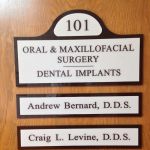Oral Hygiene: An Overview
Oral hygiene is not just about having a fresh breath and clean teeth; it's a crucial aspect of overall health. Maintaining good oral hygiene involves daily practices such as brushing, flossing, and regular visits to the dentist. Poor oral hygiene can lead to various problems like cavities, gum disease, bad breath, and even more serious health issues.
Why Oral Hygiene Matters
Proper oral hygiene is preventive care. It helps stop oral health problems before they start. Cavities, gum disease, and bad breath can all be avoided by taking good care of your teeth and gums. Moreover, oral health is closely linked to the health of your entire body. Infections in the mouth can spread through the bloodstream, causing problems like heart disease and stroke. Conditions such as diabetes, osteoporosis, HIV/AIDS, and Alzheimer's disease can also have an impact on your teeth and gums.
Signs of Poor Oral Hygiene
There are several warning signs that indicate potential oral health problems. Common signs include bleeding gums, tooth decay, chronic bad breath, loose teeth, gum recession, mouth sores that don't heal, toothache, swelling of the jaw, and gingivostomatitis. It's important to be aware of these signs and seek dental care if they persist.
Improving Oral Hygiene
To enhance your oral hygiene, follow these steps. Use fluoride toothpaste and a soft-bristled toothbrush, brushing at a 45-degree angle towards your gums to remove plaque and bacteria. Don't forget to floss to clean the spaces between your teeth. Use dental floss or interproximal brushes. Brush your tongue to remove bacteria. Use antibacterial mouthwash and visit your dentist regularly for exams and cleanings. Avoid smoking as it is a major cause of gum disease and oral cancer.
Oral Hygiene Products
When choosing oral hygiene products, look for the ADA Seal of Acceptance. Your dentist can provide personalized recommendations based on your specific needs.
Risks and Benefits of Oral Hygiene
The advantages of good oral hygiene are numerous. It leads to healthier teeth and gums, a beautiful smile, fresher breath, reduces the need for dental work, lowers the risk of various diseases, and saves money in the long run.
Dental Visits and Schedules
Regular dental visits are essential. The frequency of visits depends on your individual oral health. Many people need cleanings every six months, but those prone to cavities or gum disease may require more frequent appointments.
When to Seek Dental Care
If it's been more than six months since your last cleaning or if you experience warning signs such as tooth pain, bleeding gums, loose teeth, or chronic bad breath, it's time to schedule a dental consultation.
Oral Hygiene Tips for Adults
Adults need to be especially vigilant about oral hygiene. Avoid tobacco and excessive alcohol consumption. Get vaccinated against HPV if necessary. Manage diabetes properly. Prevent dry mouth by communicating with your doctor about medications. Act promptly if there are sudden changes in taste and smell. Avoid foods that contribute to oral diseases. Drink fluoridated water and brush with fluoride toothpaste. Practice good brushing and flossing habits. Wear a mouthguard during risky activities. Visit the dentist at least once a year. Ask for assistance if needed and clean dentures properly.
Tooth Decay and Prevention
Tooth decay is caused by dental plaque. Sugary and starchy foods can contribute to plaque formation. To prevent tooth decay, brush and clean between your teeth daily. Use a soft-bristled brush and fluoride-containing toothpaste. Floss to remove plaque from hard-to-reach areas. Did you know that tooth decay is an infectious disease? Bacteria can be spread easily, even during a simple kiss.
Proper Brushing and Flossing Techniques
The American Dental Association recommends specific techniques for effective brushing and flossing. Place your toothbrush at a 45-degree angle against the gums and use the correct amount of floss.
Oral Hygiene at UIC
UIC offers a scientific, evidence-based approach to cavity prevention called CAMBRA. Regular dental visits are important for a full evaluation and comprehensive treatment plan.
Oral hygiene is of utmost importance for a healthy and beautiful smile. By following the tips and guidelines mentioned above, you can prevent oral health problems, maintain good gum and teeth condition, and reduce the risk of associated systemic diseases. Remember, consistency in oral hygiene practices is key to achieving optimal oral health.

 Elmer Hilo, DDS0.0 (0 review)
Elmer Hilo, DDS0.0 (0 review) Above & Beyond Dentistry & Implants4.0 (540 review)
Above & Beyond Dentistry & Implants4.0 (540 review) Riverside Oral Surgery4.0 (250 review)
Riverside Oral Surgery4.0 (250 review) Campfire Pediatric Dentistry5.0 (197 review)
Campfire Pediatric Dentistry5.0 (197 review) Lindenhurst Village Dental4.0 (46 review)
Lindenhurst Village Dental4.0 (46 review) Levine Craig L DDS0.0 (0 review)
Levine Craig L DDS0.0 (0 review) The Importance of Oral Health Education During Pregnancy for a Healthy Pregnancy
The Importance of Oral Health Education During Pregnancy for a Healthy Pregnancy Best Tips for Brushing Your Teeth Properly for Healthy Gums: Essential Techniques for Oral Health
Best Tips for Brushing Your Teeth Properly for Healthy Gums: Essential Techniques for Oral Health Why Skipping Dental Checkups Can Lead to Bigger Oral Health Problems
Why Skipping Dental Checkups Can Lead to Bigger Oral Health Problems Advantages of Porcelain Dental Restorations
Advantages of Porcelain Dental Restorations How Can Diabetes Cause Tooth and Gum Problems? Preventing and Managing Oral Health Issues
How Can Diabetes Cause Tooth and Gum Problems? Preventing and Managing Oral Health Issues Healthy Habits for Promoting Good Oral Health and Hygiene: Tips for a Healthy Smile
Healthy Habits for Promoting Good Oral Health and Hygiene: Tips for a Healthy Smile